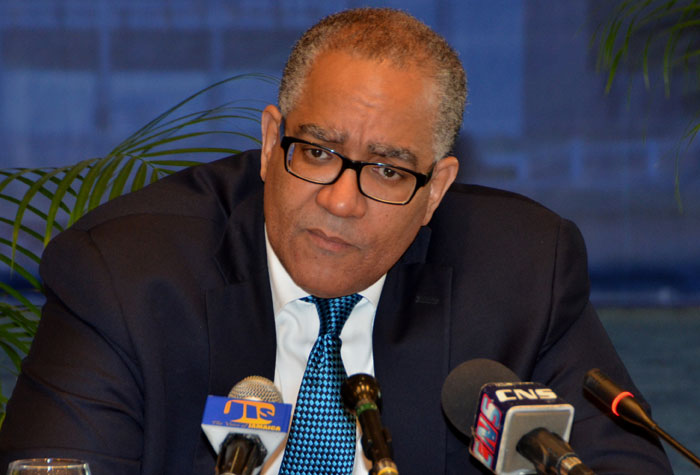Dollar Strengthens Following BOJ Intervention
By: , July 21, 2014The Key Point:
The Facts
- The Central Bank’s Governor, Brian Wynter, says since the intervention on July 10, the rate of the dollar has appreciated and this continued over the following days.
- He stated that the Bank’s intervention in the foreign exchange market was not a change of policy.
The Full Story
The Jamaican dollar has strengthened in value since the intervention in the foreign exchange market by the Bank of Jamaica (BoJ).
The Central Bank’s Governor, Brian Wynter, says since the intervention on July 10, the rate of the dollar has appreciated and this continued over the following days.
At the close of trade on Thursday, July 17, the Jamaican dollar strengthened against its US counterpart, trading at an average $112.60 to US$1, which is $0.4 less than Wednesday, July 16. The local currency traded at $112.74 to US$1 on July 9.
Mr. Wynter said the current value of the Jamaican dollar has led to an increase in the country’s relationship with its trading partners and can be seen in the improvements in the Current Account Deficit (CAD), which he noted, is set to stabilize sooner than expected.
This, he said, is good news, “because in a sense, all this…is about what is the exchange rate that will help you to have a balanced position on your current account deficit.”
Mr. Wynter was speaking during an interview on the JIS-produced current affairs programme, Issues and Answers.
He stated that the Bank’s intervention in the foreign exchange market was not a change of policy. He explained that the Bank intervenes “when the market reaches a point where it is either disorderly or is approaching…what we call a disorderly market.”
He said the central bank has intervened in the market on at least two other occasions during this year and will continue to intervene as is necessary.
Mr. Wynter noted that market conditions prior to the intervention were not supported by economics but speculation, which helped to move the rate of the dollar but resulted in no trade.
The dollar has been depreciating over the last 18 months, in order to address price differences in the Jamaican market relative to its main trading partners.
“For Jamaica, we did have an overvalued currency, an adjustment has been necessary,…prices here were rising faster by quite a lot than prices in our trading partner countries ” Mr. Wynter said.
He however assured that “the worst aspects of that (is) behind us.”
The Governor said going forward a market determined exchange rate will continue where the BOJ will maintain its policy of accounting for every trade in the foreign exchange market.
Turning to other matters, Mr. Wynter said that the BOJ is committed to lowering the inflation rate. “We’ve been successful so far, and we believe, looking at the projections for the rest of the fiscal year we are gonna continue to have a relatively low inflation rate.”
He explained that within the medium-term the BOJ is expecting an inflation rate of two to four per cent for Jamaica.
This week, the Statistical Institute of Jamaica (STATIN) reported that the inflation rate for June stood at 0.1 per cent and year-to-date at eight per cent. This, Mr. Wynter acknowledged, is in line with the BOJ’s predictions.


